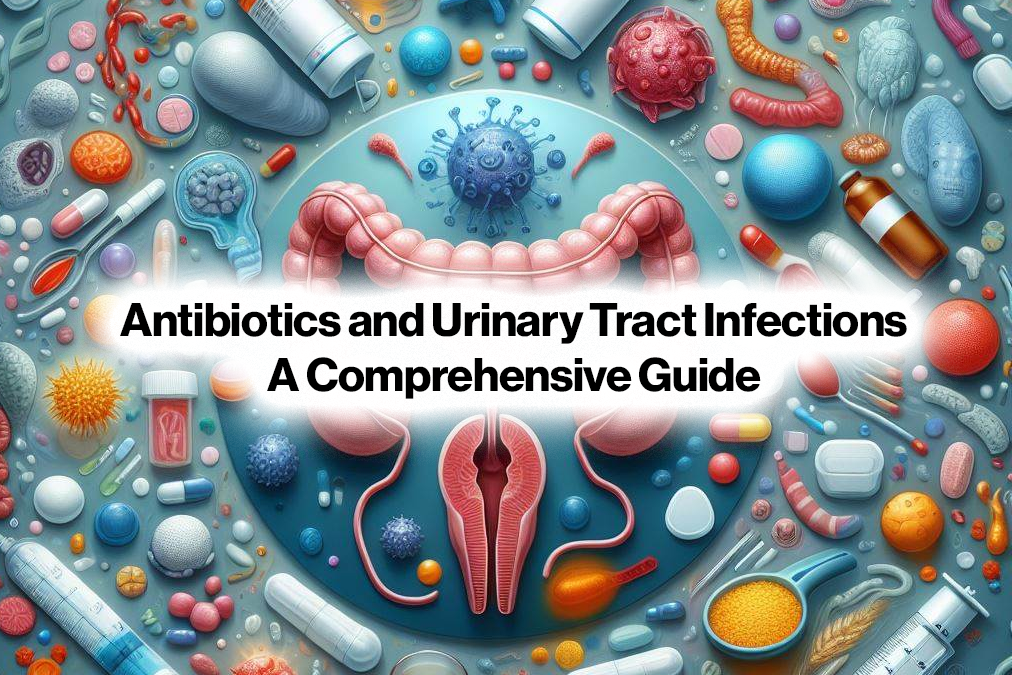Welcome to our comprehensive guide on Antibiotics and Urinary Tract Infections. In this article, we will delve into the intricate relationship between antibiotics and the treatment of urinary tract infections (UTIs). UTIs are a common medical issue affecting millions of individuals each year. Our goal is to provide you with a well-researched and insightful understanding of how antibiotics play a crucial role in combating these infections.
Understanding Urinary Tract Infections
Before we delve into the specifics of antibiotic treatments, it’s essential to grasp the basics of urinary tract infections. UTIs primarily affect the urinary system, encompassing the bladder, urethra, kidneys, and ureters. Common symptoms include frequent and painful urination, a burning sensation, cloudy or bloody urine, and discomfort in the lower abdomen.
The Role of Antibiotics
When it comes to treating UTIs, antibiotics are the cornerstone of medical intervention. Antibiotics are powerful medications designed to combat bacterial infections. In the case of UTIs, they target the harmful bacteria responsible for the infection and either kill them or inhibit their growth. The choice of antibiotics depends on factors such as the type of bacteria causing the infection and its susceptibility to specific medications.
Commonly Prescribed Antibiotics
Several antibiotics have proven to be highly effective in treating UTIs. Here are some commonly prescribed options:
1. Trimethoprim/sulfamethoxazole (Bactrim)
This combination antibiotic works by preventing the growth of bacteria. It’s often used as a first-line treatment for uncomplicated UTIs due to its effectiveness and affordability.
2. Nitrofurantoin (Macrobid)
Nitrofurantoin is known for its efficacy in treating UTIs caused by various bacteria. It’s particularly useful in cases where other antibiotics might not be as effective.
3. Ciprofloxacin (Cipro)
Ciprofloxacin is a broad-spectrum antibiotic that targets a wide range of bacteria. It’s commonly used for more severe UTIs or cases where the infection hasn’t responded to other treatments.
Proper Usage of Antibiotics
To ensure the successful treatment of UTIs and prevent antibiotic resistance, it’s crucial to take antibiotics as prescribed by your healthcare provider. Follow these tips:
- Take the full course of antibiotics, even if symptoms improve.
- Don’t share antibiotics with others.
- Avoid stopping the medication early, as this can lead to recurring infections.
Potential Side Effects
While antibiotics are highly effective, they may come with potential side effects. Common side effects include nausea, diarrhea, and allergic reactions. It’s essential to communicate any adverse reactions to your healthcare provider promptly.
Preventing UTIs
Prevention is key when it comes to UTIs. Here are some practical tips to minimize your risk:
- Stay well-hydrated to flush out bacteria from your urinary system.
- Urinate frequently and don’t hold it in for extended periods.
- Practice proper hygiene, especially before and after intercourse.
- Avoid using harsh soaps or douches in the genital area.
When to Seek Medical Attention
While mild UTIs can often be managed at home, certain situations require prompt medical attention:
- Symptoms worsen or don’t improve within a day or two of starting antibiotics.
- Blood appears in your urine.
- You experience severe pain or discomfort.
Conclusion
In conclusion, antibiotics play a pivotal role in the effective treatment of urinary tract infections. By understanding the different antibiotics available, their uses, and how to use them properly, you can empower yourself to tackle UTIs head-on. Remember, proper prevention measures and timely medical attention are crucial in maintaining urinary health.

Leave a Reply